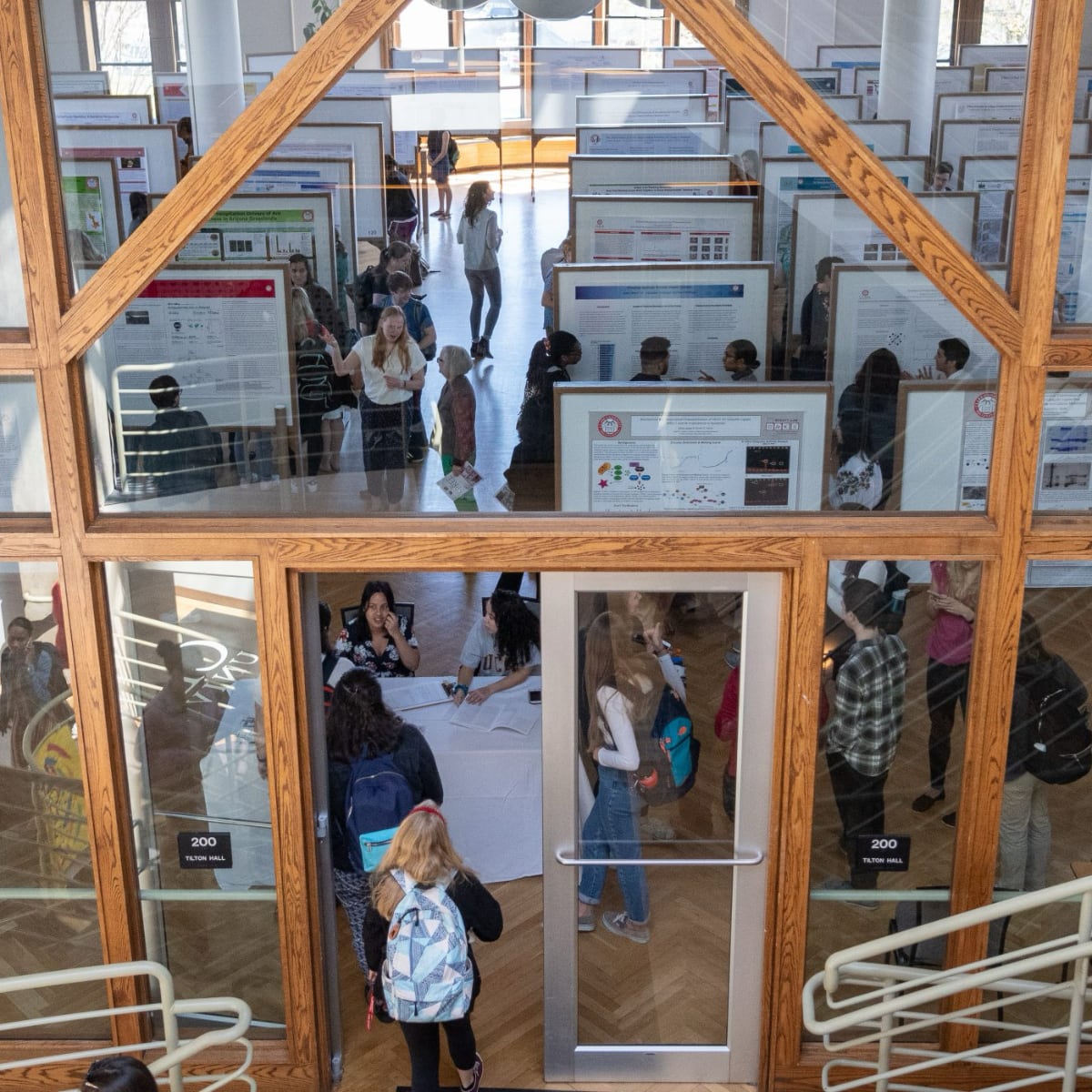As a psychology major, you’ll explore the human psyche and the connections between how we think, feel, and behave. You will learn how to promote emotional and behavioral health — both within ourselves and with others. Studying psychology at Clark provides the blueprint for a great career.


Why study psychology at Clark?
- Join the department where the American Psychological Association was started in 1892 by Clark’s first president, psychologist G. Stanley Hall.
- Participate in a rigorous program that’s unusual in requiring you to gain familiarity with experimental, statistical, and qualitative methods.
- Collaborate with professors and doctoral students on one or more groundbreaking research projects, the results of which may end up being presented at national and international scientific conferences.
- Gain hands-on experience and direct perspective on the field by completing internships at local organizations such as the Rape Crisis Center of Central Massachusetts, Massachusetts Department of Children and Families, and Worcester Recovery Center and Hospital.
- Apply
- Request Info
Are you ready to take the first step?
Featured Courses
The Psychology of Prejudice
Why does prejudice exist? How does it affect ourselves, our relationships, and our society? In this first-year intensive, we we will explore these questions by turning to the scientific literature.
Lab in Program Evaluation
How do you know if a program’s goals are being met? While participating in a real program evaluation, you’ll learn how to craft research questions, collect and analyze data, and report your findings.
Psychology of Sexual Orientation
Sexual orientation is the focus of many current social and political debates. Examine the nature of sexual orientation, how it’s assessed and measured, and shifts in the way it’s understood in today’s society.
As a psychology major, you will complete a minimum of 10 courses in the department. These include four core courses and at least one course from each of these topic areas: basic processes, developmental/cultural, and social/clinical; a first seminar; a lab or research course; and a senior capstone. You’ll choose from a diverse list of courses on topics like learning, stigma and health, development, clinical psychology, addictive behaviors, and social psychology. You can also take advantage of intensive career-relevant seminars, laboratory, and research courses, where you can participate in discussions of research and theoretical issues.
In consultation with your faculty adviser, you also will be required to complete a minor or concentration in another field that complements your psychology major. Some examples include the concentrations in peace studies and Holocaust and genocide studies, and the education minor. Alternatively, you can work with your psychology adviser to design your own sequence of six courses.
Career Communities are industry-focused groups designed to support your professional exploration and narrow down your career interests within specific fields. You’ll connect to opportunities, professionals, and information that will support your career development. The following communities may be of interest:
Health Professions and Life Sciences
Non-Profit, Human Services, and Education
Qualified students can join the Clark chapter of Psi Chi, the international psychology honor society.
Research Assistant
Boston Children’s Hospital
School Counselor
New Haven Public Schools, Conn.
Associate Health Economic Analyst
Medtronic
Clinical Research Technician
Center for Clinical Investigation, Brigham & Women’s Hospital, Boston, Mass.
Senior Marketing Associate
TechTarget
- Harvard University; Ed.M. (education)
- Princeton University; Ph.D. in social psychology
- University of Massachusetts at Amherst; Ph.D. in clinical psychology
- University of Montana; Ph.D. in clinical psychology
- University of Georgia; Ph.D. in industrial-organizational psychology
- Boston University; M.A. in mental health counseling and behavioral medicine
- John Jay College of Criminal Justice; Ph.D. in forensic psychology
The Clark Experience
The Clark Experience brings together the exceptional education you’ll receive in the classroom and so much more. Through focus and flexibility, it ensures you’ll leave Clark with the creativity, confidence, and resilience to succeed and lead a life of meaning and consequence.
Frequently Asked Questions
What can I do with a major in psychology?
At Clark you’ll get more than a great education; you’ll also be prepared for a long, productive career and life of consequence. And once you’ve completed your degree, you can join other Clark alumni who have gone on to work for great organizations and attend some of the best graduate schools in the world.
What skills will I learn?
- Knowledge of the natural world and human cultures and societies
- Intellectual and practical skills
- Capacities for effective practice
What labs and facilities are available?
The Psychology Department’s facilities include more than 35,000 square feet of laboratory space for all faculty and student research, including offices for graduate students.
Can I earn academic achievement awards in psychology?
Simon and Eve Colin Undergraduate Creativity Award
The Simon and Eve Colin Undergraduate Creativity Award was established by the Colin family, Barbara, Fred and Rebecca ’89 Colin, in honor of Simon and Eve Colin and in recognition of the many values associated with active undergraduate participation in research. The award is intended to encourage inspired, innovative, and extraordinary students in their pursuit of research in Psychology.
Dr. Lee Gurel ’48 / John E. Bell Endowed Student/Faculty Achievement Award
The Dr. Lee Gurel ’48 / John E. Bell Endowed Student/Faculty Achievement Award was established by Dr. Lee Gurel, class of 1948, in honor of John Elderkin Bell, a former faculty member in the Psychology Department. The award, based on academic merit and chosen by the department, goes to the most outstanding senior psychology major who has attended Clark for at least three years. A second award goes to the Psychology faculty member named by the student recipient as having been most influential in their Clark education.
Herman A. Witkin Memorial Fund
The Herman A. Witkin Memorial Fund was established in memory of the late Herman A. Witkin, by his wife, Dr. Evelyn M. Witkin. Herman Witkin was a distinguished psychologist, internationally known for his programmatic work on cognitive style. The fund is used to support an occasional Herman A. Witkin Memorial Lecture, or a Witkin Fellow, or other memorial activity at the Heinz Werner Institute, Clark University.
Outstanding Undergraduates in Psychology Award
The Outstanding Undergraduates in Psychology Award is given to graduating senior psychology majors who have excelled in academics and research.
Is there a psychology honors program?
During your junior year, you might be accepted into the psychology honors program. Joining the program means you’ll work closely with a professor to create a thesis on a topic of your choice. Examples of recent honors theses topics are:
- Seeking Self-Certainty in an Uncertain Time: Attachment Style and Self-Esteem in Emerging Adulthood
- Distress Tolerance as a Mediator of Borderline Personality Symptoms and Anxious Attachment, and Obsessive Relational Intrusion (ORI): An Exploratory Study
- Autism, Aggression, and Courtesy Stigma: Public Perception of Parents with Children on the Spectrum
- Alcohol Use, Social Norms, and Sense of Belongingness Among College Students and Recent Graduates
- The College Selection Process of Student Athletes
Be a force for change.
Come study at a small research university with a strong liberal arts core.

